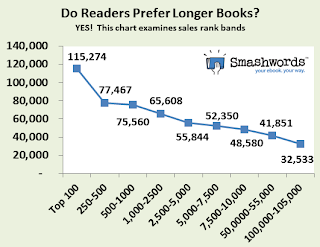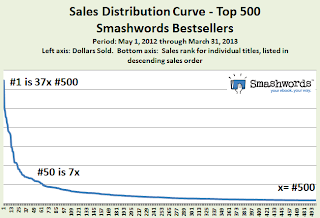In 1972, George Carlin wrote a bit titled “Seven Words You Can Never Say on Television.” It caused quite a stir with conservatives and even ended up in front of the United States Supreme Court. The debate raged for more than a decade, and then Tipper Gore pitched a shit fit over her daughter hearing Prince sing about masturbation. Senate hearings were held with the end result of the fiasco being the introduction of the Parental Advisory labels on music. Then, in 2014, someone with a stick up their butt brought us the Clean Reader App, in which they would replace all the nasty swears that hurt your eyes or make you go blind or turn you into deviant criminals with something more palatable. In a post I am one hundred percent in support of, Chuck Wendig famously told the Clean Reader folks to go take a piss. I even wrote about it as well.

But this isn’t a post about censorship, not really. It’s a post about Facebook and how they are hellbent on ensuring creators/artists/writers dance on command and that we know they don’t give a single flying fuck about us. We are their printing press; we shall not be compensated in any way for this privilege, and we can do nothing about it.
You may ask, “So, why don’t you leave Facebook?”
A mighty fine question. Many of the more prominent pages are leaving for the likes of Substack. I haven’t made that jump yet due to their problematic handling (or lack thereof) of Nazis and Nazi sympathizers. There’s Patreon, Instagram, Threads, Tumblr, X, Bluesky, and a whole host of other social media platforms, but in the end, none of them are perfect for writers. Ultimately, writers focus their energy on places where they get the most juice for the squeeze. I have a decent (and growing) following on Facebook, and I’ve managed to sell more copies of Near Death By A Thousand Cuts than I ever thought possible. But here’s the thing: I’m left wondering how many more I could have sold if Facebook didn’t have two different sets of Seven Dirty Words.
Upon reading the first set, you’ll see two trends:
- Kill
- Death
- Murder
- White
- Men
- Racist
- Anything derogatory towards right-wing politics/politicians/voters
In the United States, inciting violence is one of the few limitations of the First Amendment, so any private company that appears to be on board with that gets itself in hot water. That’s why Facebook will slap a ban on you for using violent and life-ending words like “kill,” “death,” and “murder.” Do you see how I might think that the title of my book might be seen as problematic? It didn’t even occur to me that it would be because, contextually, nothing about it is offside. My first mistake was assuming that context matters. Much like the Pearl-Clutching Puritans (PCP) who balk at the mere mention of a single bad word, the Facebook algorithm doesn’t care. Strangely enough, it doesn’t have a problem with the likes of Jim Jefferies tossing around the word “cunt” like he’s salting a bowl of popcorn, at least not until a PCP files a complaint).
The remaining words on that list have all landed progressive accounts in Facebook jail. “White,” “men,” “racist,” or anything derogatory towards right-wing politics/politicians/voters. This is where it gets amusing because context suddenly starts to matter for these words. It’s perfectly fine to scream and yell nonsense about being an “oppressed white man,” but gods forbid you factually state that a white man did something oppressive. You see this in the language and spelling progressive accounts use. “White” becomes “wyte,” “man” becomes “person with a dangly appendage,” and so on. There are a whole host of double standards. Just look at the word “cocksucker.” You can use it as a pejorative against a liberal, but you’ll get your wrist slapped if you use it against a conservative (don’t use the word as a pejorative in any situation, okay?)


So, my reach was negatively affected because I chose a title for my book that included a dirty word on Facebook. I’d be okay with it if that were the end of it, but as it turns out, that was just the beginning. You see, Facebook makes money off the content of its users. We are their printing press, remember? Furthermore, they want us to pay them to boost the content we already provide them for free. They already limit who sees our stuff. Of my 2,500 followers, if ten percent see my post, that’s a high number. On average, it’s about five percent. They want me to pay to reach the people who have gone out of their way to tell them they want to see my stuff. So what about the other ninety-five percent? Similar to their other list of Dirty Words, if you make a post that uses any of them, you can be guaranteed that your reach will hit rock bottom like a motherfucker.
They are:
- Comment
- Share
- Link (or use of a link to anywhere but Facebook)
- Buy/Purchase
- Sell/Sale/Sold
- A currency Symbol, ™, ®, ©
- Amazon/YouTube/TikTok/…
In a nutshell, Facebook doesn’t want me to make any money while ensuring they make as much from my content and follower data as possible. They claim to have all the monetization programs, but if you read their fine print, you’ll see they don’t have to pay you out. I know more than one person who has “earned” thousands of dollars and has yet to receive a dime. My reach tanked by more than half the month after I enrolled in their “bonus program.” I was using the ™ symbol in my BossCat posts, and someone suggested that might be affecting my reach, so I stopped and guess what? My posts instantly got more reactions.

Indie writers (and even midlist writers for the Big Five or anyone at a smaller house) must wear many hats. We are small business owners without extensive marketing budgets or powerhouse publishers behind us. We are like the local mom-and-pop shop on Main Street. We rely on word of mouth more than anything else. Meanwhile, Facebook keeps pushing us further down. There’s a solution: Facebook can still make billions, and pages like mine can earn a living. That would require Zuckerberg to calm his tits for half a second, though, so it’s not likely to happen. I guess you can add Algorithm Manipulation Specialist to my collection of hats.









